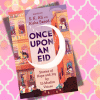Once, spring stayed longer

In early days of April, he heard the cuckoo's song as sweet as if it was the first day of spring. However the weather said otherwise, it was more humid than he thought Kolkata would be.
His vacation plan was to arrive in Kolkata during mid-February when his internet friends suggested that it was the best time to visit. When the air still grieves for the bygone winter and trembles at the sight of a soft sun turned ruthless.
He boarded the bus with David Bowie in his ears and the city's sweat clung to his neck. He had come alone, chasing the kind of solitude that only makes sense when you're twenty-three and far from home. He was not heart-broken or in desperate need for adventure. So, when his friends asked him what his purpose was, he struggled to answer them. He told them they will find out when he comes back. Suddenly his backpack felt heavier – the thought of having to take an answer back home with him made him anxious. He thought they might have forgotten about it anyway, but his mother called him every day. In a worried tone, she'd ask if he had eaten and whether he was okay. He calmed her as he calmed himself as well.
It was more than thrilling, not knowing the streets – just knowing the histories that unravelled here. He thought of Kolkata as a literary temple and all his books, the scripture.
The bus groaned along Hooghly's edge, its rusted joints screeching like a tea kettle left too long on the flame. Through open windows, the air poured in thick with diesel fumes, the burnt-caramel stink of exhaust, and underneath it all, the river's wet, mossy breath. He loved the view, nonetheless. It was this city's discreet charm: it pulses its beauty and the next moment it is all dust and noise.
When the bus stopped at a point, a boy sat beside him – all elbows and sharp knees – with a basket of tuberoses wedged between them. Their scent hit like a slap of alpine wind: icy, green, deliriously sweet. It sliced through the bus's stew of sweat and stale betel nut through his own salt-damp shirt clinging to his back. He inhaled, startled. The flowers' stems wept milky sap where they'd been torn from the earth, their petals cool as cellar walls against his thigh.
The boy glanced at his headphones.
"What are you listening to?"
The voice was lighter than expected, a clear bell ringing through the bus's diesel growl. He tugged one foam-padded earbud free. Music leaked out, a thin, tinny strand of Starman dissolving into Kolkata's afternoon symphony.
"A man who fell to Earth," he answered.
The boy threw his head back and laughed. A sound so bright it seemed to startle even the crows perched on the power lines outside. The corners of his eyes crinkled into perfect crescent moons, and in that moment, he recognised something unexpected: kinship. This boy, like him, was not from here.
"Where are you from?" the question slipped out before he could stop it.
The boy stiffened for a fraction of a second, then his whole face softened as if he'd been waiting years for someone to ask.
"My grandfather said things are very bad back home," he murmured, fingers tugging the frayed edge of his shirt.
"Where is home?"
"Far away. In the mountains, where spring never ends."
"Tell me about this place where spring never ends."
The boy's voice dropped to a whisper. "My grandfather was a Kabuliwala."
And suddenly, the mystery of his eyes, their unusual tilt, the gold flecks in the brown, all made sense. He was Hazara, the descendant of those rugged peaks, even if he'd never seen them.
"I've never seen home," the boy admitted, plucking a jasmine blossom from his basket. "But I live beside the garden where the moon collects flowers."
Pressing the flower into him palm. "And these, these smell better than your music."
Poetic nonsense. The kind of lie only children and exiles tell with such wide, unblinking certainty. And yet he brought the jasmine to his nose, inhaled its narcotic sweetness, and wondered if maybe, just maybe, it was true.
Before he could ask, he knew the boy would show the path to this garden, where "moon collects flowers". They get out of the bus and start walking in between walls, thick with the scent of people and noise of conversations. The rust between the walls alone were a testament of old times and their aging bodies that carry the new times. The boy glanced back, his eyes catching the last molten gold of the setting sun. "Come," that look said, "the moon won't wait."
And so they walked, past doorways where shadows pooled like spilled ink, past windows that watched them with the knowing gaze of a hundred unseen eyes. Above them, the first star pricked the sky. And somewhere ahead, beyond the labyrinth of walls, the garden appeared.
The boy plucked a gardenia and tucked it behind his ear.
"See?" the boy whispered. "This is where spring hides."
He understood: the flowers weren't growing despite the city. They were growing because of it. The way beauty sharpens itself against the weight of the world.
He breathed in. The boy grinned, his teeth catching the moon.
That night, spring stayed longer.
Ohona Anjum writes, rhymes, and studies English literature.

 For all latest news, follow The Daily Star's Google News channel.
For all latest news, follow The Daily Star's Google News channel. 









Comments